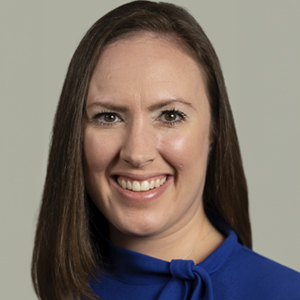Healthcare providers can become a “second victim” when a patient suffers an adverse medical outcome.
During any medical procedure or treatment, there is always a possibility that something will go wrong. Our firm delivers strong representation to patients and families who are injured through medical mistakes made by physicians, surgical teams, and healthcare institutions. While medical malpractice is one reason for a poor medical outcome, there are a variety of others.
Known side effects are associated with most drugs and medical interventions. If a patient experiences a known side effect, it does not necessarily mean that a medical mistake was made. The lack of medical liability, however, does not mean the patient suffers any less. A surgical or treatment team may be operating within the normal standard of care and a patient could still experience a poor outcome or complicated, diminished recovery.
The physical, emotional, and financial cost of an adverse medical outcome or medical malpractice is difficult to calculate. Added to this is the pain suffered by health care providers who are involved with a patient who suffers a sudden physical downturn or a poor surgical consequence. These healthcare providers can become “second victims.”
What Is The “Second Victim Syndrome?”
For physicians, nurses, specialists, and other healthcare providers, the medical field is rewarding, often fast-paced, and important in any community. As in every field, bad things happen. Sometimes they happen due to mistake, but adverse outcomes sometimes just happen. Here is a research definition of the “second victim:”
“Second victims are health care providers who are involved in an unanticipated adverse patient event, in a medical error and/or a patient related injury and become victimized in the sense that the provider is traumatized by the event. Frequently, these individuals feel personally responsible for the patient outcome. Many feel as though they have failed the patient, second guessing their clinical skills and knowledge base.”
In the past, fewer healthcare facilities and physicians were willing to openly discuss second victims. Hand in hand with programs that encourage training and procedures to avoid medical mistakes at all levels, more medical providers are starting to assess the impact of being a second victim. Just some of the symptoms suffered by those unable to address an adverse patient outcome include:
- Guilt, shame, and horror for injuring a patient or causing them harm
- Fear and anxiety about the possibility of litigation and the potential impact to their career
- Bewilderment, misunderstanding, and wracking questions about what went wrong and how the outcome could have been avoided
- Depression, sleeplessness, and diminished enjoyment in life, work, and relationships
- Undo or unhelpful fixation on the event, instead of efforts to build better practices, processes, and focus on better care
At a recent conference in Copenhagen, Denmark, research was presented that confirmed the personal responsibility felt by physicians for medical error made under their authority. In an anonymous survey of 34 anesthesiologists, 91 percent identified with the symptoms of the second victim. Only three percent of these providers sought professional help or programs to help them, and another 60 percent only spoke with colleagues to try and work through their thoughts and feelings.
When a medical mistake is made, a patient suffers. When the physician or others suffer too, confidential assistance to recognize feelings, evaluate what happened, and put practices in place to avoid future harm is far better than silent suffering.
Skilled Medical Malpractice Lawyers In Washington, D.C. and Baltimore, Maryland
With more than three decades of successful experience, the legal team at Schochor, Staton, Goldberg, and Cardea, P.A. aggressively protects the rights of injured clients and fights to achieve maximum compensation on your behalf. Contact us today to schedule a free consultation.













